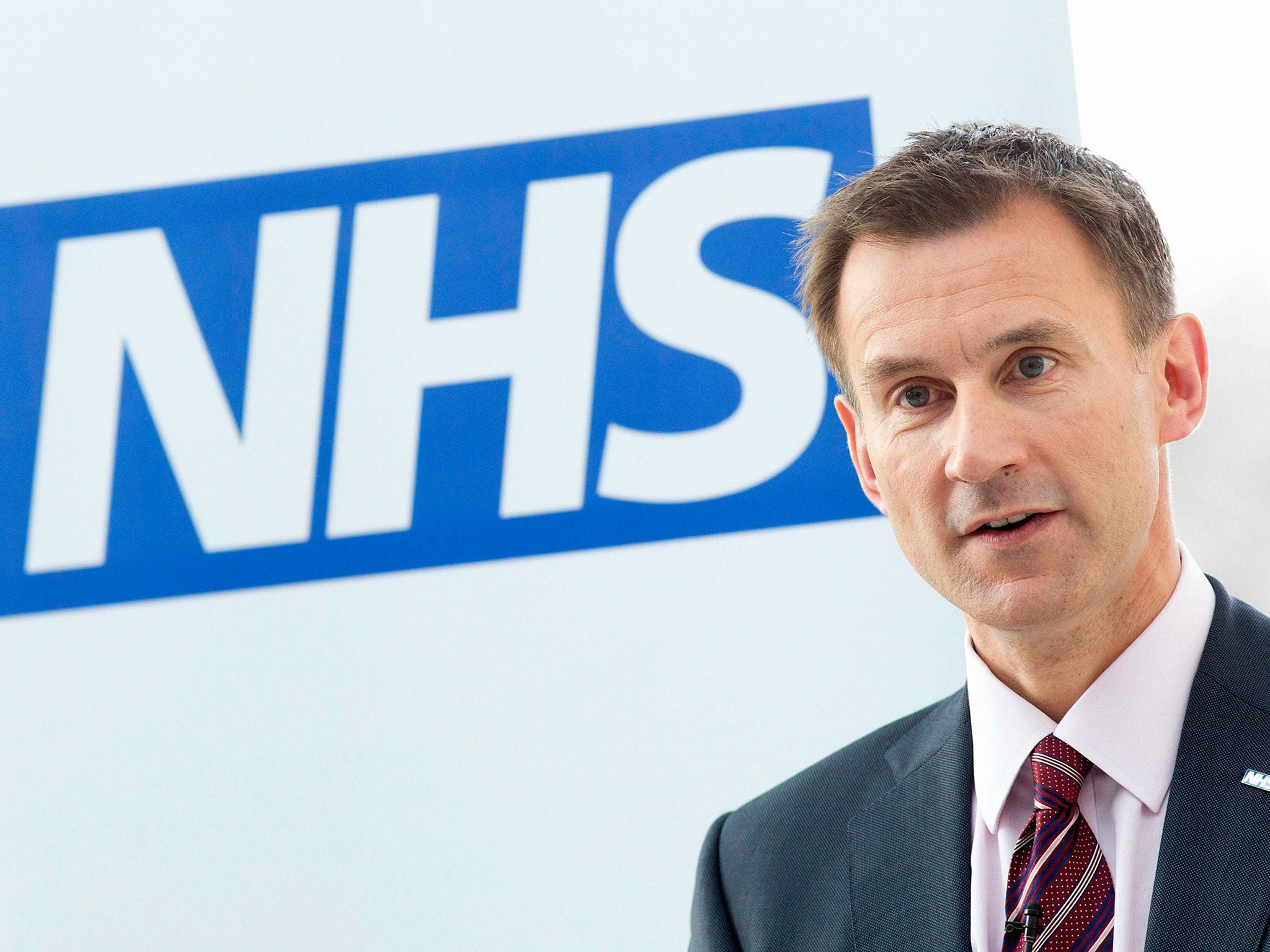The financial meltdown of the NHS, in one chart
The NHS is in its worst financial state 'in a generation'

Your support helps us to tell the story
From reproductive rights to climate change to Big Tech, The Independent is on the ground when the story is developing. Whether it's investigating the financials of Elon Musk's pro-Trump PAC or producing our latest documentary, 'The A Word', which shines a light on the American women fighting for reproductive rights, we know how important it is to parse out the facts from the messaging.
At such a critical moment in US history, we need reporters on the ground. Your donation allows us to keep sending journalists to speak to both sides of the story.
The Independent is trusted by Americans across the entire political spectrum. And unlike many other quality news outlets, we choose not to lock Americans out of our reporting and analysis with paywalls. We believe quality journalism should be available to everyone, paid for by those who can afford it.
Your support makes all the difference.The NHS has been plunged into its worst financial crisis in a generation, regulators have revealed.
According to statistics from financial regulator Monitor, NHS Foundation Trusts in England accrued a combined deficit of £445 million in just three months, while other NHS trusts overspent by £485 million in that same period.
However dramatic these latest figures are, the finances of the NHS have been in steady decline since the coalition government of 2010-15 implemented sweeping cuts to the public sector.
Monitor explains that the dramatic overspend of recent years is in part due to an ‘over-reliance’ on costly agency staff.
Labour has blamed Conservative cuts to nurse training places resulting in a shortage for which agency staff were forced to compensate.
The Royal College of Nursing commented: "This isn’t a financial crisis which has emerged in the last few months – it is the inevitable culmination of years of rising demand and short term financial planning."
The graph above shows the end-of-year performance of NHS Bodies in each of the last six years — and it doesn’t even include this crisis quarter (since the year’s not over yet).
NHS Bodies - Primary Care Trusts, Strategic Health Authorities, NHS Trusts and Foundation Trusts - underspent versus their allocated budgets up until 2013-14, when it began fell quickly into overspend.
From a surplus of nearly £2 billion in 2009-10 to a deficit of a nearly £1 billion last year; that’s a drop of 143 per cent in six years.
This trend, and particularly this latest set of results, “needs addressing urgently,” Paul Briddock, Director of Policy at Healthcare Financial Management Association, told The Independent.
“The financial situation is currently looking dire and it is a critical concern for those in the sector.
“Finance Directors in Foundation Trusts are facing extremely challenging times and face a nigh-on impossible job trying to balance the books at the moment.
“Many of them I’ve spoken to with several years track record now feel near the end of their tether.”
Monitor’s data covered 151 NHS Foundation Trusts, while the Trust Development Authority (TDA) covers 90 NHS trusts.
Of those 90 trusts, 72 ended the first three months of the financial year in the red, while eight out of ten Foundation Trusts were found to be running a deficit by the end of the first quarter.
Monitor said the Foundation Trust sector is “under massive pressure” and can no longer to go on as it is.
The release of the figures on Friday come after Mr Hunt was accused of delaying the publication of the statistics until after the Conservative party conference.
A senior figure at Monitor said they had been “leaned on” by Whitehall to delay publication until after the Tory party conference in Manchester earlier this week.
Labour’s shadow Health Secretary Heidi Alexander said the actions taken by Conservative ministers were to blame for the debts. “It is now clear why these figures weren't released ahead of Tory party conference – they show an NHS in crisis,” she said.
“The alarming deterioration in NHS finances is a direct result of actions this Government has taken.
“Cuts to nurse training places has left the NHS with a shortage of nurses, forcing hospitals to hire expensive agency staff. As Monitor acknowledges, this is the primary cause of the deficit.
“With a difficult winter approaching hospitals are facing a stark choice between balancing the books and delivering safe care.
“Ministers might be in denial, but the fact that in the first three months of this year, NHS trusts are facing a bigger financial hole than that which built up over the whole of last year is a clear sign of how desperate the funding situation has now become.”
Join our commenting forum
Join thought-provoking conversations, follow other Independent readers and see their replies
Comments